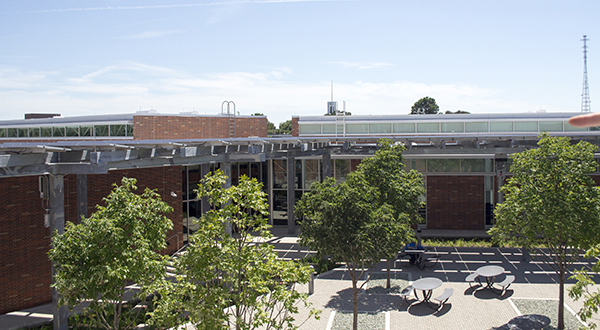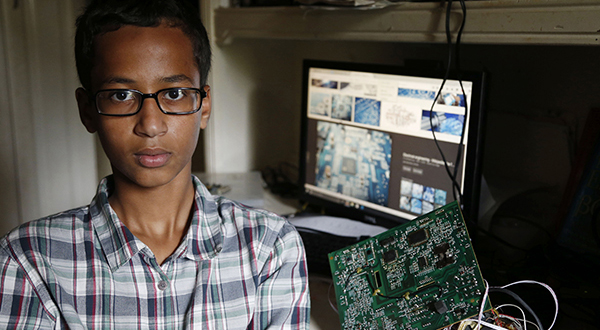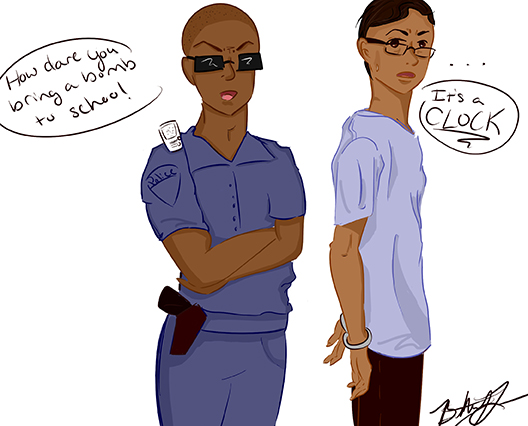Tabitha Redder/ reporter
As our country ages, the once-clear policy toward religion in government and politics continues to blur.
Thomas Jefferson’s division between church and state is vital to an efficient, successful and inclusive America.
What is the effect of a lack of separation? Bedlam.
An adequate example is the recent legalization of gay marriage.
Providing the opportunity for all people to get married seems like a positive direction for this restrictive, non-inclusive country to go in, right?
Not if religion is brought into the picture.
This summer, Kentucky county clerk Kim Davis refused to issue marriage licenses to same-sex couples because she “faced a choice between her consciousness and freedom,” USA Today reported.
In early September, police department patrol vehicles in a west Texas town donned decals proclaiming “In God We Trust,” the Star-Telegram reported.
These two and many other situations where government and religious faith intertwine are problematic.
When people are hired as government employees, they need to fulfill the job description without allowing personal opinions to interfere.
When those interfere, it causes the system to work inefficiently and can cause unrest in citizens because America is not a monotheistic country. The freedom to choose is available. One size does not fit all.
Religion in government also creates a divide.
The country is already divided in so many ways: socioeconomic class, race, ideological party. Citizens don’t need something as personal and intimate as religious ideals to impede their communication with the government.




























